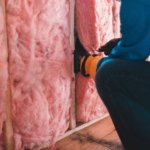October 24, 2025
Negotiating What Stays and What Goes: Chattels vs. Fixtures in Toronto Property Deals
When you tour a home for sale in Toronto, the finishes, like paint colour, flooring style, and kitchen design, often catch your eye first. Equally important are the appliances, built-in shelving, mirrors, and light fixtures. These items can carry hidden negotiation points. You need to know whether they are included in the sale or if the seller will take them. A real estate lawyer in Toronto can help ensure clarity and protect your purchase.
Understanding the Difference Between Chattels and Fixtures
In Ontario real estate law, the difference between a fixture and a chattel can affect what transfers with the property at closing. A fixture is typically attached to the property in a way that removal could cause damage or require tools. Examples of fixtures include built-in ovens or custom shelving units. A chattel is a movable item that stays the seller’s property unless specifically included in the sale, such as freestanding sofas or pictures hung by hooks. Ambiguity can lead to disputes, so your lawyer will advise on listing exactly which items stay with the property and which do not.
Why Clear Documentation Matters
Agreements of Purchase and Sale often mention chattels and fixtures, but not every item is obvious. A lawyer ensures the agreement clearly states which items are included and which are excluded. They also make sure leased or financed equipment, like rental hot-water tanks or HVAC systems, is handled properly before closing. Alarm systems, furnaces, and other built-ins should be transferred free of obligations if included. Buyers should never assume that everything in the home comes with it. A lawyer can document the make, model, condition, and attachment status of key items, preventing surprises after closing.
Commonly Overlooked Items
Some items often cause confusion. Hot-water tanks and furnaces may be rented or owned. Alarm systems that are wired in may be removed unless explicitly included. Appliances must be correctly classified as built-in or freestanding. Exterior structures, like sheds, stonework, or patios, may count as fixtures. Even listings that say “furnishings included” should be confirmed in the agreement. A lawyer ensures all inclusions and exclusions are clearly documented.
How a Real Estate Lawyer in Toronto Protects Your Purchase
An experienced lawyer safeguards your rights by reviewing the agreement for ambiguous clauses and explaining Ontario’s rules. They ensure that fixtures stay with the property unless excluded, and chattels remain the seller’s unless included. They handle rented or financed equipment so it is transferred or paid off before closing, draft clear language for inclusion, exclusion, and item condition, and reduce the risk of disputes or surprises after closing.
Final Words: Document Everything
In Toronto real estate, assuming that everything you see will remain with the home can be costly. Whether you are buying a detached house, a condo, or a property with built-in features, a clear agreement is essential. A lawyer ensures your agreement reflects your expectations, prevents surprises, and protects the value of your investment. Before signing, confirm what is included, what is excluded, and the condition of all items at closing.









